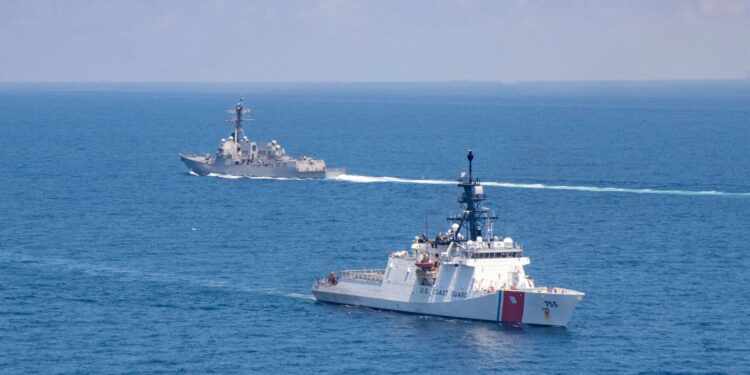The United States’ determination to protect Taiwan and China’s “wolf-warrior” response to Nancy Pelosi’s trip to Taipei have turned the Indo-Pacific into a new theatre of war with major military implications for the QUAD nations.
On her historic one-day trip to Taipei, the House Speaker went one step further and promised Taiwan a “ironclad” commitment. She did this just two months after US President Joseph Biden said he was willing to defend Taiwan from a Chinese invasion with the military. The Chinese response mostly followed the PLA’s strategy of “information warfare,” in which the enemy is bombarded with half-truths and scared off by rumours about the Chinese Communist Party’s military power spread through propaganda media and Twitter accounts.
The Chinese threats of retaliation and crazy threats against the US are good reasons to go ahead with the Pelosi visit. The US is the only democratic country with the military power to call the Communist Party of China’s bluff. This will make other democratic countries think twice before starting diplomatic relations with Taiwan. Europe just doesn’t have what it takes to compete with China, and they don’t want to because trading with Beijing is so important to them. ASEAN will benefit from the Xi Jinping regime’s decision to make ASEAN a non-aligned group. This is because ASEAN has historically been a member of the “Chopsticks Club.” None of these countries want to lose in a fight between two giants. On July 26, the president of Indonesia was the only reason the heavy steel doors of the Forbidden Kingdom were opened.
Russia’s retaliation against China for its help in the Ukraine war was to accuse the US of making things worse by sending in Pelosi. This was also good for Russia. Client states like Pakistan also showed their support for Beijing by reiterating the “One China” policy, which says that Taiwan is part of the Middle Kingdom.
The Xi Jinping regime will also be hurt by Nancy Pelosi’s trip to Taiwan and China’s haughty response. This is because Pelosi’s trip and China’s response suddenly raise the Communist regime’s risk profile, which will make US, European, and Japanese multinational corporations rethink their plans to invest more in China. As the military tension between Beijing and Washington, which is now supported by both parties on this important issue, gets worse, people are likely to take their money out of the Chinese mainland.
Even though Nancy Pelosi’s visit wasn’t much of a story on the Chinese mainland, the events of this week may make the Chinese people quietly wonder why the PLA threat before Pelosi’s arrival wasn’t carried out on the ground. The way President Xi Jinping dealt with all of Pelosi’s visit will make people wonder if he will be able to handle the complicated relationship with the US in the future, especially when it comes to Taiwan and the Indo-Pacific. Since Speaker Pelosi wasn’t scared off by the Chinese war dance, the Communist Party’s realists will think again about whether or not they need to go to war with the US over Taipei. This is not good news for President Xi Jinping, who is running for re-election later this year.
The US naval armada in the Philippine Sea, which includes the Ronald Reagan Carrier Strike Group and the amphibious assault ship USS Tripoli, stops the PLA from making things worse around Taiwan, with the exception of holding live military drills and letting fighter planes fly over the democratic island nation to appease critics at home. Given that the wolf warriors have set a military pace, the PLA may decide to take its anger somewhere else. India and Japan need to be aware of this.

































